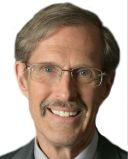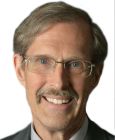Personality
The Trump Bubble Bursts: It's Personality, Not Politics
High conflict politicians have a predictable and dangerous pattern.
Posted January 8, 2021 Reviewed by Ekua Hagan
For the past 20 years, I have been studying and writing about high conflict personalities in family conflicts, workplace disputes, and legal cases. In 2016, I recognized the same personality pattern in Donald Trump’s bid for president, and in March 2016, I wrote a short book titled: Trump Bubbles: The Dramatic Rise and Fall of High Conflict Politicians, in hopes of explaining to party officials why he should not get the Republican nomination.
High conflict politicians have a pattern of behavior that is predictable and dangerous, which everyone needs to learn to set limits on it and prevent it from happening again. There are trump bubbles forming all the time.
Here is what I wrote in 2016:
You might think I’m crazy to have written a book about the rise and fall of Donald Trump when he’s riding high in March 2016. But I feel quite confident that the pattern of behavior I describe in this book will play out in the same way that it has for so many other high-conflict leaders—in politics and in business. I just don’t know the timing of his fall ...
Trump has a seductive us-against-them personality style that far exceeds any other candidate, Republican or Democrat, and can inspire violence. Sure, there was Stalin, Idi Amin, Saddam Hussein, and other ruthless dictators. But Hitler took a cultured democracy—like ours—and turned it into a hate machine that he led into World War II.
Can’t happen here? There are many high-conflict personality warning signs that say it can … I believe that Trump has a 50-50 chance of winning the presidential election in November 2016. The high-conflict personality pattern is already in place and, if I’m correct, Trump has only just begun. (Eddy, 2016, 1-3, 7)
This knowledge was more accurate than the pollsters, who gave Trump only a 20% chance of winning in 2016. They didn’t realize the seductive power of a high conflict personality.
They Can't Stop Themselves
In reading about other high conflict politicians of the past hundred years, I realized that high conflict politicians cannot stop themselves—they always have to be stopped by others or their own physical health. I also saw that their power and ability to gain followers is emotional, not logical or ideological. So I defined a “trump bubble” as when emotions trump thinking in politics. Like an incredible stock market bubble or housing bubble (such as in 2008), they eventually burst.
In the book, I also explained how high conflict personalities predictably split groups in half and teach people to remove their restraints:
Ironically, high-conflict disputes often end up splitting in a very similar way—almost half the group emotionally supports the high-conflict person and almost half the group says they’re absurd for the following logical reasons, which they then explain with as much intensity as the emotional supporters. It almost seems like magic, how this 50-50 split occurs around so many high-conflict people whom I and others have observed. We cannot assume it will be any different with Trump, or another trump bubble candidate.(p. 77)
In short, he has a pattern of unrestrained verbal behavior that is exaggerated and risky—even to his chance to become president: “It’s going to be a beautiful thing,” “China’s killing us, just killing us,” “I could just punch him in the face,” “People like that used to be carried out on stretchers” ...
We have to understand that high-conflict personalities are different. I truly believe that Donald Trump does not realize his own power—he doesn’t understand that his high-conflict speaking ability can unleash pure aggressive behavior in others. (Eddy, 2016, 77, 132, 133) (Emphasis added.)
Would he stop tweeting if he became president, people asked? Would he realize the impact of his language and tone it down? No, I explained. Not surprisingly, this pattern never changed in the following five years, despite his excuses and the endorsement by the inevitable negative advocates he seduced. Once you know the pattern, you can predict a lot.
Here’s what I predicted at the end of Trump Bubbles:
If he becomes the president of the United States, within 12 months we will be at war with somebody. [At exactly 12 months in office, he started trade wars with China, Canada, and Europe.] He tends to inspire violence and lack of restraint, which leads to organized aggressive behavior, which leads inevitably to war. He will “split” the world into allies and enemies. We will have more chaos than we do now in the Middle East—and on American soil. Friends and family members will start hating each other, and schoolchildren will become disrespectful and violent toward people who look different from them…. I hope I’m wrong about this.(p. 143)
The Fantasy Crisis Triad (AKA Conspiracy Theories)
By May 2019, I had studied other high conflict politicians in much more depth and wrote a book titled Why We Elect Narcissists and Sociopaths—And How We Can Stop! (2019) The pattern of seduction of followers became much clearer, as did the increasing prevalence of high conflict politicians in today’s high-emotion media environment. I identified the 3-step emotional seduction process of high conflict leaders, which all of them totally fabricate based on what they think will hook people, not based on reality:
- There’s a terrible crisis (except that it’s a fantasy, such as Obama’s birth certificate, Hilary’s emails, voter fraud, and many others). This stirs up intense fear.
- There are evil villains causing the crisis (except this is also a fantasy, such as Obama, Hilary, immigrants, minorities, Congress, and many others). This stirs up intense resentments.
- I am the hero who will save you (“Only I can fix it”). Having no experience in government or leadership, the only way they can get elected is to portray themselves as an outsider hero, which trumps logical thinking. This stirs up intense love.
I explained how this Fantasy Crisis Triad is spread emotionally and becomes believed by many:
These Wannabe Kings also continuously repeat that they are the heroes everyone wants and needs—and the sole human beings with the ability to vanquish the villains. Because of the reach and speed of modern media, this simple drama then ripples quickly around the nation and the world. Even media outlets that recognize its bogus nature help spread it, because it’s considered news to be repeated—simply because it comes from a dramatic and compulsively verbal Wannabe King. Over time, each Fantasy Crisis Triad feels more and more real. Eventually it takes hold, infecting us like a virus. (Eddy, 2019, 53)
I described a dozen world leaders and how they used Fantasy Crisis Triads to get elected and then take over their countries as authoritarian rulers. Then, I described how to avoid electing them.
Conclusion
This is not a new problem, just new to America at this level. The comments made by those who just sought to overthrow the elected government included all three parts of the Fantasy Crisis Triad. (Then, afterward, Trump told them he loved them.)
I hope that more people will begin to see high conflict personality patterns as predictable and dangerous. Now, we need to spread the vaccine of knowledge before more high conflict politicians use exactly the same high conflict pattern of behavior to get elected in the future—in the United States now as well as worldwide. This is no longer a there and then problem, but a here and now problem.
References
Eddy, B. Trump Bubbles: The Dramatic Rise and Fall of High-Conflict Politicians (Scottsdale, AZ: Unhooked Books), 2016.
Eddy, B. Why We Elect Narcissists and Sociopaths--And How We Can Stop! (Oakland, CA: Berrett-Koehler Publishers), 2019.




